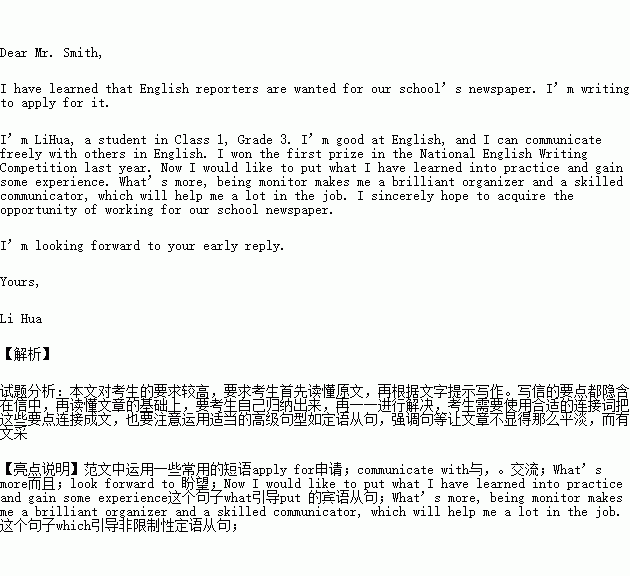题目内容
书面表达
假如你是李华。最近,你校英文报面向全体学生招聘英语记者。请根据以下要点提示,给校报负责人Mr. Smith 用英语写一封自荐信。
要点:1. 个人情况
2.英语能力
3. 组织沟通能力
注意:1. 词数100左右。
2. 可以适当增加细节,以使行文连贯。
3. 开头和结尾已经写好,不计入总次数。
练习册系列答案
相关题目
书面表达
假设你校英语报正在征集一篇介绍名人生平的文章。请根据以下表格写一篇稿件向校报投稿,简要介绍德国作曲家贝多芬 (Ludwig van Beethoven)
贝多芬 | 生平事迹 |
出生日期、地点 | 1770年12月出生于德国波恩(Bonn) |
童年时期 | 自幼跟父亲学音乐,很早就显露了音乐才能,八岁开始登台演出 |
成年后 | 在事业获得巨大成功的同时饱受耳聋折磨1827年去世 |
作品 | 一生完成了一百多部作品,其中有交响乐9部,影响至今 |
注意:
1. 词数100左右;
2. 可以适当增加细节,以使行文连贯;
3. 参考词汇:composer 作曲家 symphony交响乐 masterpiece 作品。

